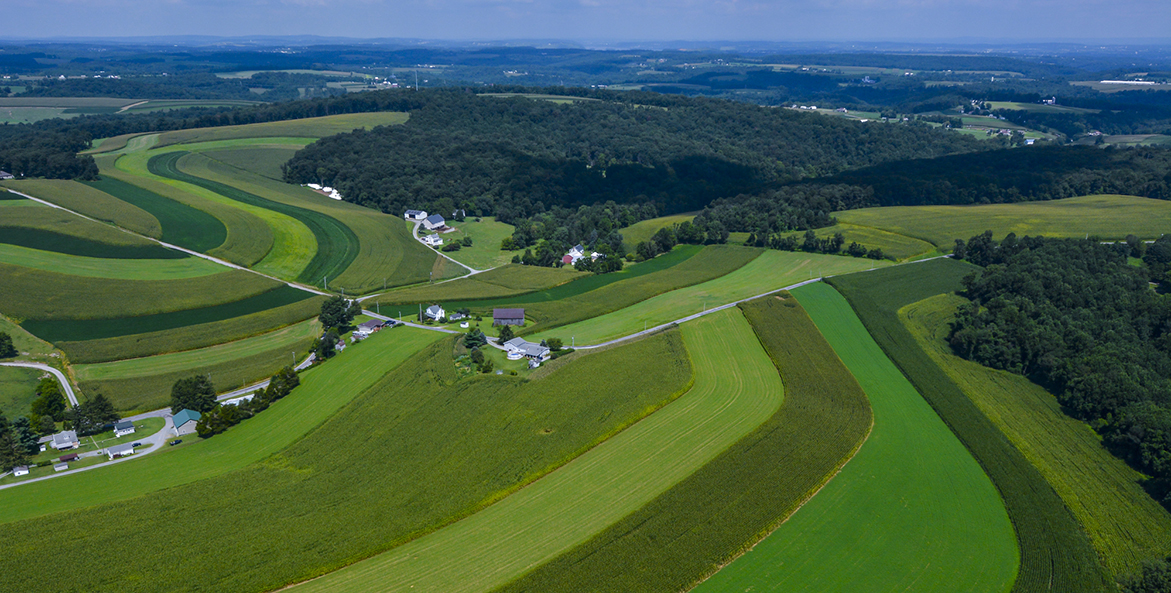A proposed program in Pennsylvania will provide the funding support farmers want and need to help keep soil on the land, reduce pollution, and protect their long-term viability—all while helping the Commonwealth get back on track toward meeting clean water goals.
State Senator Gene Yaw (R-Lycoming) has announced plans to introduce legislation to create the Agricultural Conservation Assistance Program (ACAP) that will target funding for local farms through their county conservation districts. It will be administered by the State Conservation Commission.
“Agricultural practices are some of the most cost-effective ways to reduce nutrient and sediment pollution, and they have the double-benefit of improving soil health, nutrient efficiency, and the long-term viability of farm operations,” Senator Yaw said.
Farmers in the Keystone State are willing to invest their time, land, and effort to restore and protect our rivers and streams, but they cannot pay for it all themselves. ACAP is the agricultural cost-share program Pennsylvania sorely needs.
The Pennsylvania Department of Environmental Protection’s (DEP) latest biennial report lists 25,468 miles of Pennsylvania waters, 5,500 miles more than in its 2016 report, as being harmed by pollution.
“Almost one-third of our Commonwealth’s streams do not meet standards for drinking, fishing or recreation and agriculture remains one of the largest sources of impairment,” Senator Yaw said. He is Majority Chair of the Senate Environmental Resources and Energy Committee.
The DEP report identified agriculture runoff as the source of 5,765 miles of impaired waters.
Pennsylvania came up short in meeting its 2018-19 milestones for the necessary pollution reductions. It also lags significantly behind in implementing 100 percent of practices by 2025 that would restore local water quality in the Commonwealth and meet its Chesapeake Clean Water Blueprint goals.
Pennsylvania’s Phase 3 Watershed Implementation Plan (WIP) would achieve 73 percent of the nitrogen reductions needed to meet its Blueprint goals and has an annual funding shortfall of $324 million.
“Given the challenges of meeting a 2025 deadline to have all practices in place to meet the Chesapeake Bay cleanup plan,” Senator Yaw said, “now is the time for Pennsylvania to enact legislation that will provide a roadmap for meeting those goals.”
Senator Yaw is currently seeking co-sponsors for the ACAP from his Senate colleagues.
CBF, Pennsylvania Farm Bureau, and Penn State Agriculture and Environmental Center worked jointly to propose the program that would direct funding to conservation districts, and provide the needed technical assistance to farms and the flexibility to determine conservation practices specific to local watershed needs.
“Pennsylvania farmers, as stewards of the land, recognize the critical benefits of healthy soils and clean water,” said Shannon Gority, CBF Executive Director in Pennsylvania. “Everyone wants agriculture to succeed and it’s long past time that it gets the resources and technical assistance to finish the job. Our economy, health, heritage, and quality of life depend on it.”
The concept of ACAP is modeled after the state’s Dirt and Gravel Road program, in which funding is allocated to conservation districts based on a formula that factors in miles of unpaved road and proximity to high-quality streams. It focuses targeted dollars to areas with the greatest need, not through a one-size-fits-all approach. The Dirt and Gravel Road program is funded annually through a gas tax and allocated by the State Conservation Commission.
In ACAP, funding would be prioritized for counties based on factors like the amount of crop acres and livestock near streams impaired by agriculture.
Conservation districts would be required to invest in and approve pollution reduction measures that might include cover crops, streamside trees, and more, and devise criteria for which ones will have the most immediate impact on local water quality. Districts would work with farmers and landowners to ensure that conservation practices are installed properly and functioning as designed.
ACAP would authorize a broad spectrum of funding sources to support the program, including state dollars, federal allocations, grants, and private enterprise investments.




